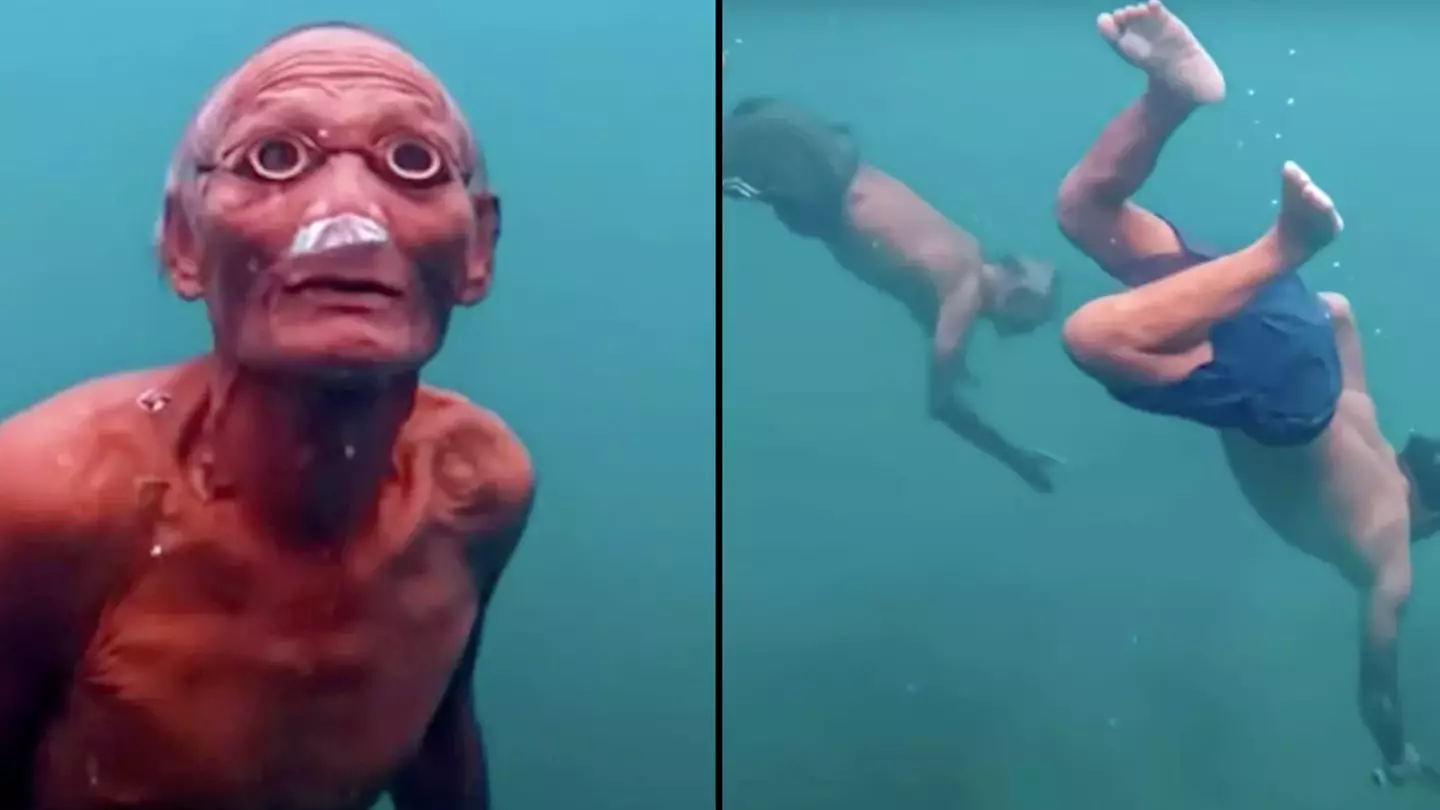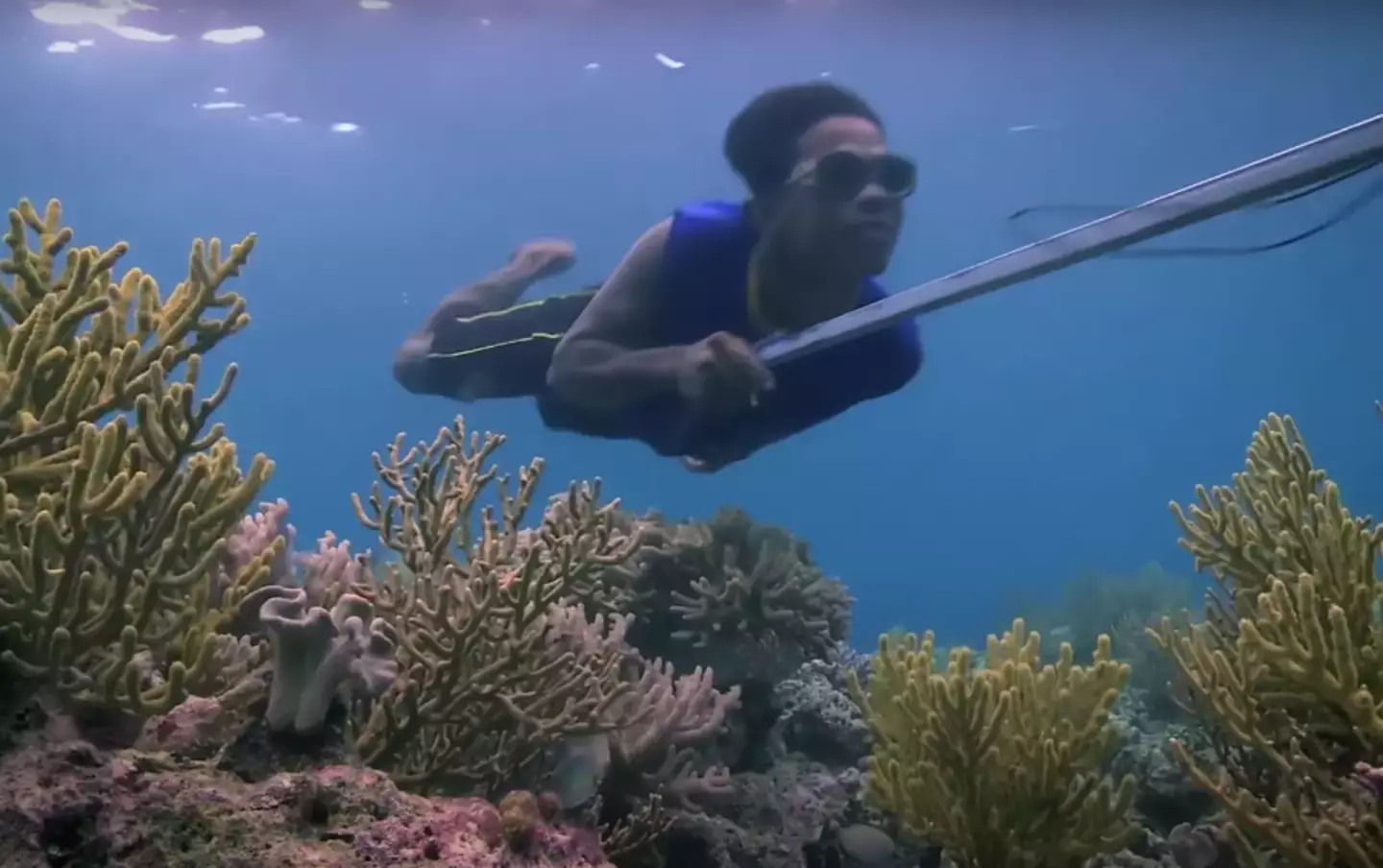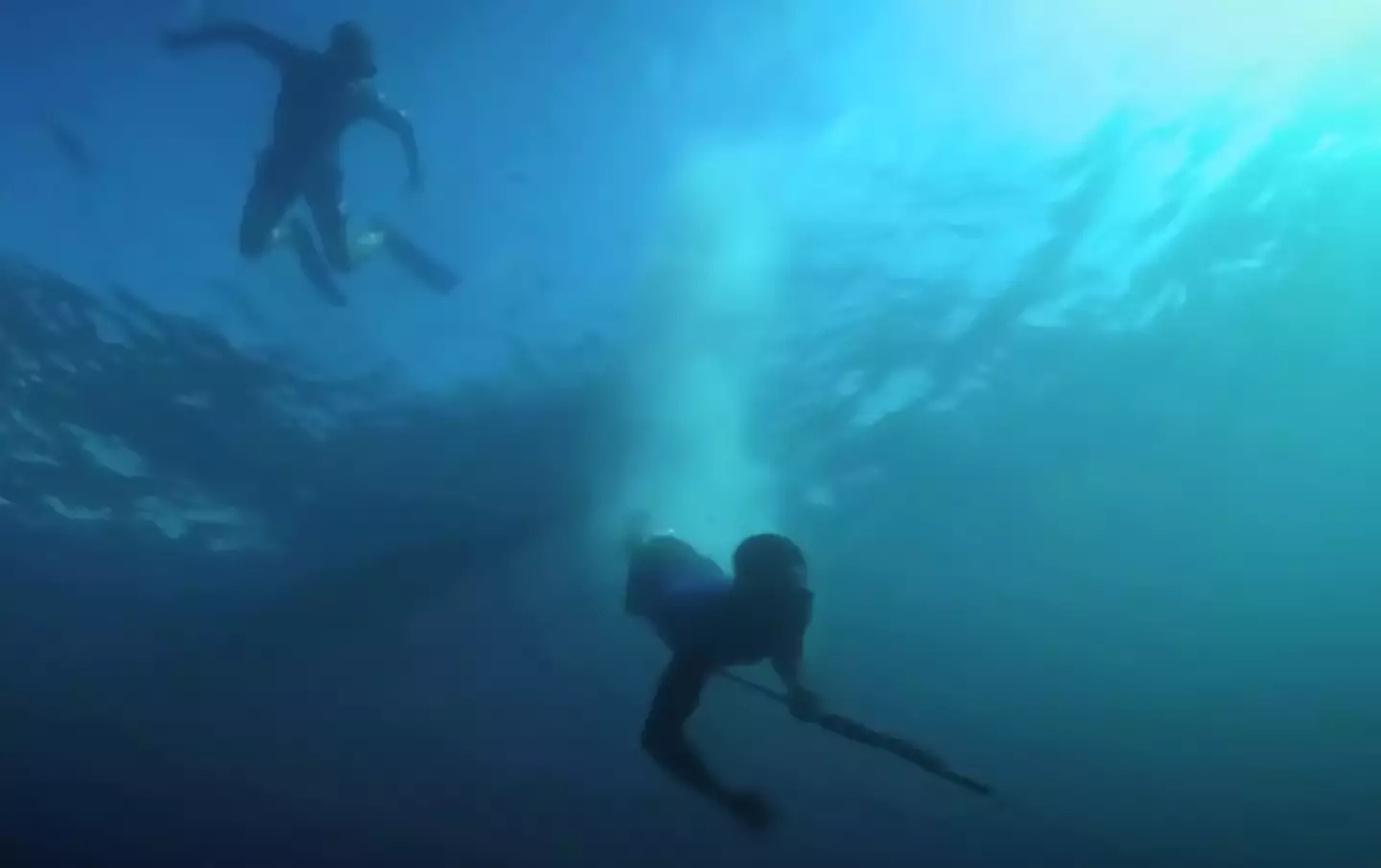
There is a tribe of people in South-East Asia who have developed an unlikely mutation which helps them thrive in the sea.
Known as the Bajau people, they have been diving for nearly 1,000 years, even going as far as to live in houses on stilts which give them as much access to the sea as possible.
Having lived in such a watery climate for generations, the people have lived by spearfishing, collecting shellfish and taking what they need from nature for years.
This could be the reason that studies have shown that they actually have developed bigger spleens than the rest of the world.
Advert
Spleens might not be the organ you usually think of that is detrimental to your wellbeing, but it’s actually essential for providing you with more oxygen in your blood - so a bigger spleen is perfect when diving for 8 hours a day.
First author of the study, Melissa Ilardo, from the University of Copenhagen, told the BBC's Inside Science programme: "For possibly thousands of years, [they] have been living on house boats, travelling from place to place in the waters of South-East Asia and visiting land only occasionally. So everything they need, they get from the sea.
"When they're diving in the traditional way, they dive repeatedly for about eight hours a day, spending about 60% of their time underwater. So this could be anything from 30 seconds to several minutes, but they're diving to depths of over 70m.”
Using traditional wooden goggle and weighted belts, the tribe has learned to adapt to their aquatic lifestyle.

"There's a human dive response that's triggered by holding your breath and submerging yourself in water. You can trigger it by submerging your face in cold water," Ilardo explained.
"Your heart rate slows down, you have peripheral vasoconstriction where the blood vessels in your extremities get smaller to preserve the oxygenated blood for your vital organs and then the last thing is a contraction of the spleen.
"The spleen is a reservoir for oxygenated red blood cells, so when it contracts, it gives you an oxygen boost. It's like a biological scuba tank."
That’s when Ilardo decided to take a look for herself and asked villagers to look at their spleens.
What she found was that the Bajau people had a 50% larger spleen then a neighbouring village.
Co-author Prof Rasmus Nielsen, from the University of California, Berkeley said: "We could ask the question: are there any genetic variants - are there any mutations - that are at a much higher frequency, that have changed their frequency specifically in the Bajau compared to other populations.”

After further tests, they found that the gene, PDE10A, was found to correlate with the Bajau's larger spleen size.
The gene is typically known for regulating a thyroid hormone in mice which also controls the size of the spleen.
In a separate study of Tibetan people living in high altitudes, they found that their gene adaptation came from inbreeding with Neanderthals and the researchers wonder if this is also a possibility here.
Rasmus Nielsen added: "It's a wonderful example of how humans can adapt to their local environments, but there may be some medical interest in this. There's been a lot of interest in understanding hypoxia adaptations - adaptations to low oxygen levels.
"By studying the Bajau, we can figure out: what are some of the genes that help predict differences in people in how they respond to acute low oxygen levels?"
But it could soon be over for the people.
Santarawi Lalisan, an elder statesman of the tribe told Giuseppe from Project Happiness that their culture is now dying due to Western ways.
He said: "A lot of plastic has arrived here because today the Badjao go to the supermarket and here they use plastic and no longer paper. In the past, the Badjao only used paper when they were buying something."
Now, the sea is full of plastic and is making it difficult for the tribe to continue their ways.
Topics: BBC, Health, Travel, Science, Environment
